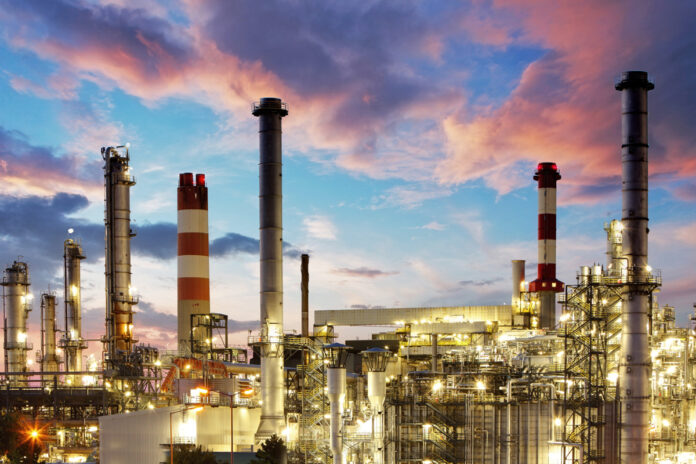ISLAMABAD: The Petroleum Division has requested the government to make the proposed incentive package part of Finance Bill 2021-22 in order to technical up-gradation of existing refineries and incentivise new investment.
According to sources, Petroleum Division has formulated an incentive package for investment in up-gradation and sustainable operation of existing refineries as well as to attract investment in new state of the art deep conversion integrated refineries. And, requested that the proposed incentive package be made part of Finance Bill 2021-22.
As per details, a draft incentive package was prepared after extensive deliberation between the stakeholders consisting of commitment from refineries for upgradation within five years to produce environmental friendly Euro-V spec products and reduce furnace oil production. And, after five years, the refinery will be in a position to operate at optimal capacity with technological enhancement, leading to forex saving.
It has also been proposed that as available to other domestic industries, tariff protection for refineries be provided by zero percent duty on raw material, i.e. crude oil, for refineries and 10 per cent duty on finished products such as petrol and diesel. Similarly, 0pc import duty on crude oil which is a raw material for refineries. Furthermore, decrease import duty from 13pc to 10pc on diesel and increase import duty from 5pc to 10pc on petrol.
Documents available with this scribe disclosed that the proposed tariff protection formula would contribute revenue to refineries up to 40pc only and remaining 60pc investment would be arranged by refineries at their own, about $3.5 billion total cost, for upgrading activities during the next five years.
As per estimates, the net revenues for the Federal Board of Revenue (FBR) will remain neutral due to tariff revision coupled with growing demand for petroleum products in the country.
It is also learnt from the documents that a comprehensive monitoring mechanism has laid down in draft policy which include transfer of international revenues to special reserve account in National Bank of Pakistan (NBP) to be exclusively utilised for project upgradation which will be monitored by Oil and Gas Regulatory Authority (OGRA) through technical inspection/audit as well as statutory commercial audit to be carried out by one of big four audit firms.
Certain tax incentives and exemptions are part of proposed incentive package, documents state.
Sources also informed that the draft incentive package was circulated to stakeholders such as finance and planning division as well as OGRA and FBR etc.
They said that the petroleum products demand supply projections indicates requirement of additional refining capacity of at least 400,000 barrels per day at a cost of $10-15 billion by 2030.
They said with regard to investment for new refineries, in February 2019, ARAMCO and PSO initiated discussion for the integrated deep conversion refinery petrochemical in Pakistan.
“The pre-feasibility was completed in July-August 2020, however the project has been on hold due to low IRR,” they said.
Earlier, a meeting was chaired by the Prime Minister of Pakistan on December 7, 2020, to review the progress of PARCO Coastal Refinery Project (PCR) in which the PM endorsed (i) incentive package for upgradation of refineries with an investment of $3-5 billion and (ii) a green field deep conversion integrated refinery petrochemical project with an investment in a range of $10-15 billion.
Similarly, a meeting with the finance minister was held on June 2, 2021, to discuss the policy incentives and inclusion of the same in the finance bill. The meeting was attended by finance minister, minister for Energy, SAPM on Petroleum, secretary Petroleum, FBR chairman, additional secretary Finance and Revenue, DG Oil and representatives of refineries.
A detailed presentation was made on the proposed incentives. The finance minister advised FBR chairman to seek further clarity on the fiscal and tariff protection incentives before incorporation in the upcoming
In compliance, a meeting was held on June 4, wherein detailed data and assumptions were shared and board macroeconomic picture and challenges of the midstream refining sector were highlighted.
It is pertinent to mention that the last Petroleum Policy was announced in 1997. In the past 49 years, only two refineries have been commissioned in the country due to limited incentives. To formulate a new refining policy, discussions between refineries and Petroleum Division started in December 2019.
In view of discontinuation and reduction of the various incentives and pricing formulas from time to time, protection available to local refining industry has significantly eroded; coupled with low international margins, these have badly affected the profitability of refineries, causing heavy losses and thereby, putting the survival of local industry at stake and are now at the verge of closure.
The prevailing pricing mechanism for local refineries is regulated and linked with the international market with low tariff protection.
Despite various constraints, refineries kept on upgrading to produce Euro-II/Euro-III standard products.
Accordingly, their survival is now at risk unless fiscal support and adequate tariff protection is urgently provided.





Good info. Can you name the refineries that will be benefitted by this tariff and degradation policy ? Regards
Good information and write up. Can you mention the benifcery refineries names from this policy. Regards